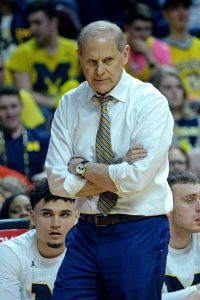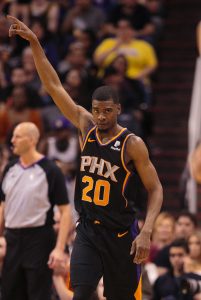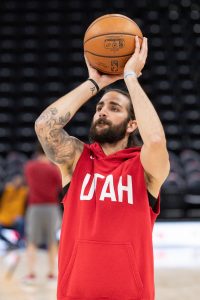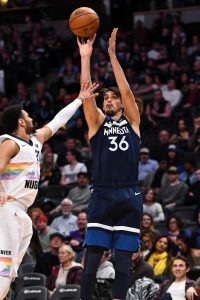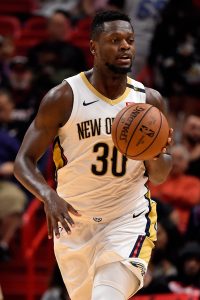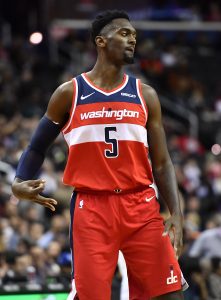Hoops Rumors is breaking down the 2019 offseason for all 30 NBA teams, revisiting the summer’s free agent signings, trades, draft picks, departures, and more. We’ll evaluate each team’s moves from the last several months and look ahead to what the 2019/20 season holds for all 30 franchises. Today, we’re focusing on the Cleveland Cavaliers.
Signings:
- Standard contracts:
- None
- Two-way contracts:
- Dean Wade
- Non-guaranteed camp contracts:
- Marques Bolden: One year, minimum salary (Exhibit 10).
- Daniel Hamilton: One year, minimum salary (Exhibit 10).
- J.P. Macura: One year, minimum salary (Exhibit 10).
- Jarell Martin: One year, minimum salary (Exhibit 10).
- Alex Robinson: One year, minimum salary (Exhibit 10).
- Sindarius Thornwell: One year, minimum salary (Exhibit 10).
- Malik Newman: One year, minimum salary (Exhibit 10) (Waived).
- Levi Randolph: One year, minimum salary (Exhibit 10) (Waived).
Trades:
- Acquired the draft rights to Kevin Porter Jr. (No. 30 pick) from the Pistons in exchange for the Jazz’s 2020 second-round pick, the Trail Blazers’ 2021 second-round pick, the Trail Blazers’ 2023 second-round pick, the Heat’s 2024 second-round pick (top-55 protected), and cash ($5MM).
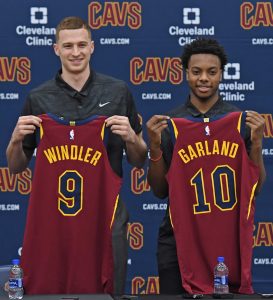
Draft picks:
- 1-5: Darius Garland — Signed to rookie contract.
- 1-26: Dylan Windler — Signed to rookie contract.
- 1-30: Kevin Porter Jr. — Signed to rookie contract (worth less than 120% of the rookie scale).
Departing players:
- Deng Adel (two-way)
- Jaron Blossomgame (two-way)
- Marquese Chriss
- Channing Frye (retired)
- David Nwaba
- J.R. Smith (waived)
- Nik Stauskas
Other offseason news:
- Parted ways with head coach Larry Drew.
- Hired John Beilein as head coach.
- Hired J.B. Bickerstaff as associate head coach.
- Hired Lindsay Gottlieb as assistant coach.
- Team owner Dan Gilbert hospitalized with stroke symptoms.
Salary cap situation:
- Remained over the cap.
- Carrying approximately $129.77MM in salary.
- Taxpayer mid-level exception ($5,718,000) still available.
- Note: The Cavaliers are below the tax apron ($138.93MM) and could theoretically use the non-taxpayer mid-level exception and/or bi-annual exception, but wouldn’t be able to use those exceptions in full while staying below the apron.
Story of the summer:
LeBron James hasn’t suited up for the Cavaliers since June of 2018, but the franchise remains very much in transition mode following his departure. Most of the team’s expensive contracts for veteran players who were acquired to play alongside James won’t expire until after the 2019/20 season, meaning they were still clogging the cap this summer.
With all those contracts on the books, the Cavs had little flexibility to do anything in free agency. And since most of those vets on expiring deals don’t have positive trade value, the club also didn’t have much leverage to get anything done on the trade market.
As such, the Cavs had essentially completed their offseason work by the end of draft night. The team hired a new head coach in the spring, then added three first-round prospects at the draft. One of those three first-rounders – Kevin Porter Jr. – was acquired in Cleveland’s only trade in the offseason, and the cap-strapped club didn’t sign a single veteran free agent to a guaranteed contract.
While the Cavs may have liked to make a few more moves and accelerate their rebuild a little, their cap situation necessitated patience. The organization will be in a better position to be more active at this year’s trade deadline or in the 2020 offseason.
